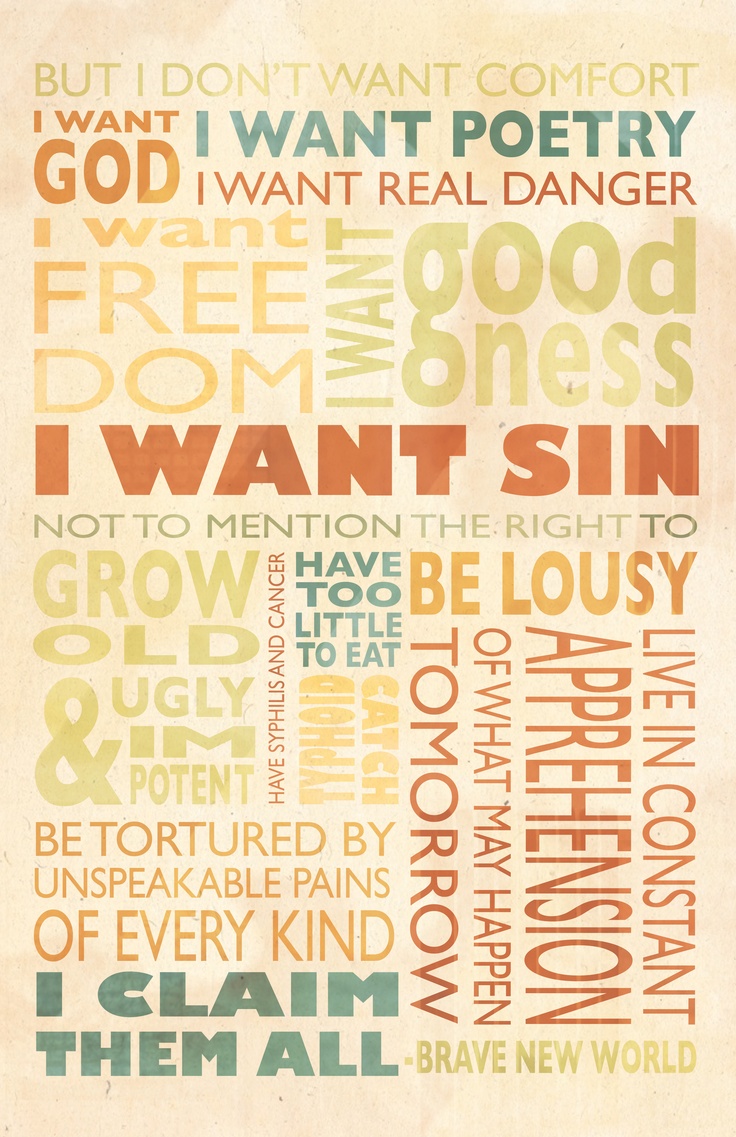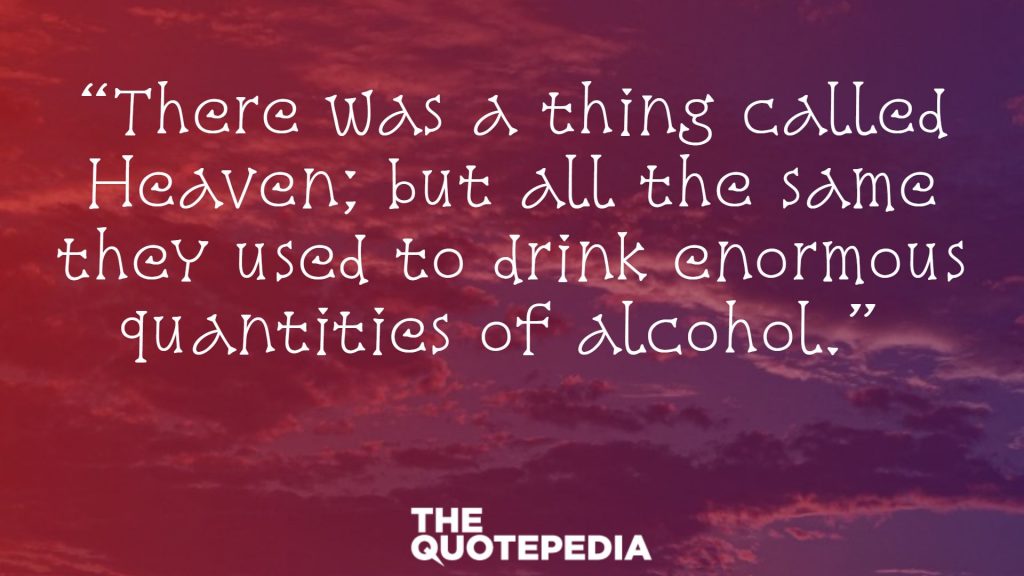
This disclosure brings the discussion - and the novel itself - to its climax. The discomfort and the pain, John maintains, are an essential part of freedom, beauty, and religion. John, of course, rejects this view immediately, because, according to his definition, a worthwhile human life requires suffering and danger, from which will spring nobility and heroism. In a memorable phrase, Mond describes soma as "Christianity without tears." In his response, Mond accepts the virtues of Christianity - kindness, patience, long-suffering - as reasonable and even socially valuable, but points out that soma can do as well as years of painful self-denial in producing virtuous behavior. A life of constant amusement and pleasure, he argues, is "degrading." Where Mond sees comfort as the pinnacle of human experience, John sees it as a barrier to growth and spirituality. In contrast, John's argument stems from a belief in self-denial and suffering as a means to the good - by which he means virtuous - life. Thus, Mond argues, God is irrelevant in the brave new world. But if age and discomfort are banished, the physical, material world never loses its pleasure. According to Mond's view, people turn to religion only when age and discomfort impel them to look beyond the physical world.

Mond's argument against religion in his world is materialistic - the main point being that the culture of comfort has made God obsolete. John, in contrast, has actually lived a religious life in Malpais, surrounded by the rituals of worship and purifying himself in fasting and suffering. Mond knows about God and religion from the forbidden books he has read - the Bible, the medieval Imitation of Christ, and the relatively modern works of Cardinal Newman and William James. Mond and John's experiences of religion oddly complement one another.

With Bernard and Helmholtz gone, Mond and John concentrate on the issues that distinguish the traditional world - John's Malpais as well as the reader's world - from the dystopia, especially a belief in God. In this chapter, Mond continues his discussion of the practical philosophy of the world he controls. John's formal acceptance of all the horrors of sickness, poverty, and fear - capped by Mond's terse "You're welcome" - ends the chapter. Mond counters that John is claiming "the right" to be unhappy, and John agrees. As their discussion unfolds, John expresses his disgust at the casual ease of living in a society where science and conditioning abolish all frustrations. In this chapter, Mond and John discuss the brave new world - especially the absence of God.


 0 kommentar(er)
0 kommentar(er)
